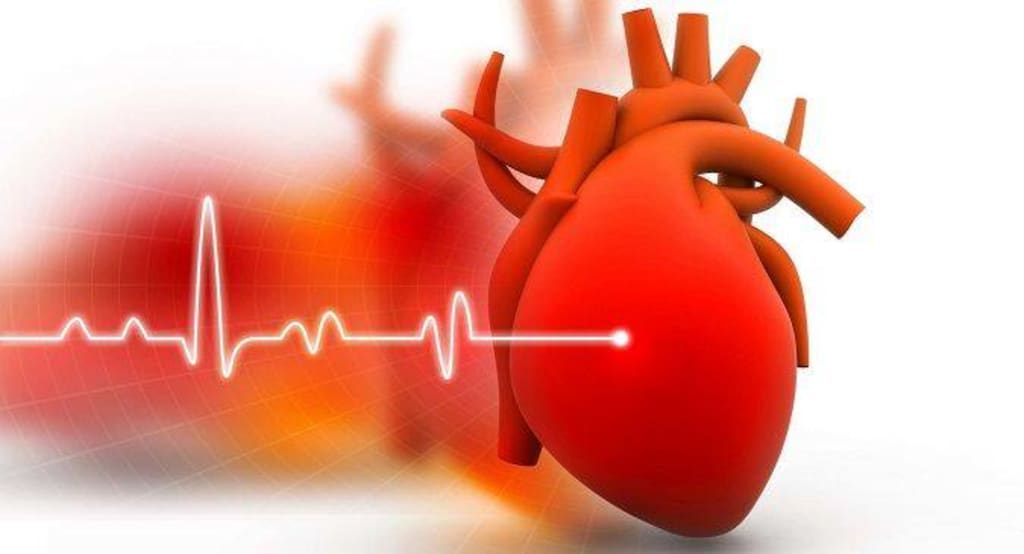How to Reduce the Risk of Cardiovascular Diseases
Cardiovascular diseases

Cardiovascular diseases (CVDs) remain a leading cause of mortality worldwide, claiming millions of lives each year. These conditions, including heart attacks and strokes, often result from a combination of genetic factors, lifestyle choices, and environmental influences. The good news is that many CVDs can be prevented or significantly reduced by adopting a heart-healthy lifestyle. In this article, we will explore evidence-based strategies to reduce the risk of cardiovascular diseases and promote long-term heart health.
Embrace a Heart-Healthy Diet
A balanced and nutritious diet plays a pivotal role in maintaining cardiovascular health. Adopting a diet rich in fruits, vegetables, whole grains, lean proteins, and healthy fats can significantly reduce the risk of heart disease. Here are some dietary guidelines to follow:
a. Increase Fruit and Vegetable Intake: Aim to consume a variety of colorful fruits and vegetables, as they are abundant in essential vitamins, minerals, and antioxidants that promote heart health.
b. Opt for Whole Grains: Replace refined grains with whole grains like brown rice, quinoa, whole wheat, and oats. Whole grains are high in fiber, which aids in reducing cholesterol levels and maintaining healthy blood vessels.
c. Choose Lean Proteins: Incorporate sources of lean protein such as poultry, fish, legumes, and tofu while limiting red meat consumption. This helps to maintain a healthy weight and lower the risk of heart disease.
d. Healthy Fats: Replace saturated and trans fats with healthy fats found in avocados, nuts, seeds, and olive oil. These fats can help reduce bad cholesterol levels and lower the risk of heart disease.
Regular Physical Activity
Engaging in regular physical activity is one of the most effective ways to reduce the risk of cardiovascular diseases. Exercise helps to maintain a healthy weight, improve blood circulation, lower blood pressure, and manage stress. Aim for at least 150 minutes of moderate-intensity aerobic activity or 75 minutes of vigorous-intensity aerobic activity each week, combined with muscle-strengthening activities on two or more days.
Maintain a Healthy Weight
Obesity is a significant risk factor for cardiovascular diseases. Maintaining a healthy weight is essential for heart health, as it reduces strain on the heart and lowers the risk of high blood pressure, diabetes, and high cholesterol. A combination of a heart-healthy diet and regular exercise can help achieve and sustain a healthy weight.
Quit Smoking
Smoking is one of the most significant risk factors for CVDs. The chemicals in tobacco smoke can damage blood vessels, increase blood pressure, and contribute to the formation of plaque in arteries. If you smoke, quitting is the single most important step you can take to improve your heart health. Seek support from healthcare professionals or support groups to increase your chances of success.
Limit Alcohol Consumption
While moderate alcohol consumption may have some cardiovascular benefits, excessive drinking can harm the heart and lead to other health issues. If you choose to drink, do so in moderation. For most adults, this means up to one drink per day for women and up to two drinks per day for men.
Manage Stress
Chronic stress can have a negative impact on heart health. High levels of stress can lead to unhealthy coping mechanisms such as overeating, smoking, or excessive alcohol consumption. Incorporate stress-reducing activities into your daily routine, such as meditation, yoga, deep breathing exercises, or spending time in nature.
Regular Health Check-ups
Regular health check-ups are vital for early detection and prevention of cardiovascular diseases. Your healthcare provider can assess your risk factors, monitor your blood pressure, cholesterol levels, and blood sugar, and provide guidance on maintaining a heart-healthy lifestyle.
Reducing the risk of cardiovascular diseases is within reach for most individuals through a combination of lifestyle changes and proactive healthcare. By adopting a heart-healthy diet, engaging in regular physical activity, maintaining a healthy weight, and making other positive lifestyle choices, you can significantly improve your cardiovascular health. Remember, prevention is key, and taking proactive steps today can lead to a healthier and more fulfilling life tomorrow.
About the Creator
Reynol Brennan
A small blogger who shares emotions, life, life insights, and short stories, and provides everyone with happiness, growth, and common sense of life.
Enjoyed the story? Support the Creator.
Subscribe for free to receive all their stories in your feed. You could also pledge your support or give them a one-off tip, letting them know you appreciate their work.






Comments
There are no comments for this story
Be the first to respond and start the conversation.